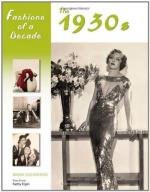|
This section contains 456 words (approx. 2 pages at 300 words per page) |

|
In 1930 Jessie Daniel Ames, a white suffragist from Texas, formed the Association of Southern Women for the Prevention of Lynching (ASWPL), dedicated to challenging the southern, male pretense that lynching was a chivalrous act designed to protect white female purity.
Father Charles E. Coughlin began to give weekly radio sermons from Detroit in 1922. By 1930 his sermons were broadcast over seventeen networks in the East and Midwest. In 1934 the "radio priest" founded the Union for Social Justice, which served as a platform for his growing bigotry, anticommunism, and anti-Semitism.
In 1935 Parker Brothers of Salem, Massachusetts, released Monopoly, a board game adapted by unemployed engineer Charles B. Darrow from the turn-ofthe- century Landlord's Game, originally designed to exemplify the economic theories of single-tax advocate Henry George. Darrow's patent to the game made him a millionaire.
Dorothy Day founded the Catholic Worker Movement with French...
|
This section contains 456 words (approx. 2 pages at 300 words per page) |

|




